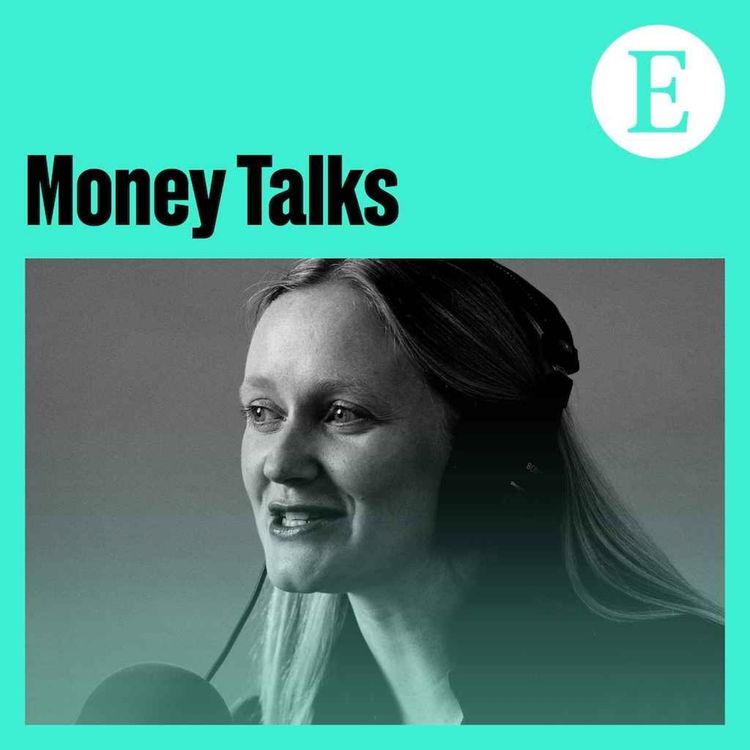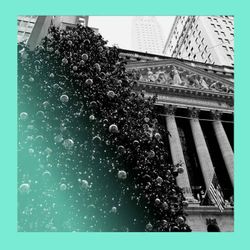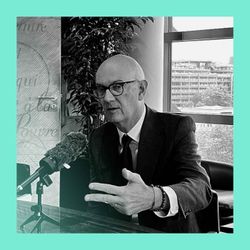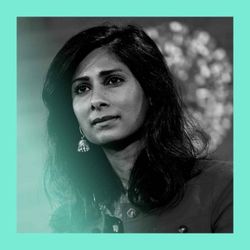Share

Money Talks from The Economist
Robotaxis: how close is a driverless future?
Earlier this month, Elon Musk unveiled a new autonomous taxi, designed by his car company Tesla. Musk promises that his Cybercab, a two-seater car without a steering wheel or pedals, will be on sale before 2027. But how realistic is this vision? With driverless technology still under development, how long will it be until autonomous vehicles become part of everyday life?
Hosts: Tom Lee-Devlin, Mike Bird and Alice Fulwood. Guests: Simon Wright, industry editor at The Economist; Gavin Jackson, CEO of driverless software company OXA; Holly Watson Nall, an engineer at Oxa; and Kersten Heineke, head of the McKinsey Centre for Future Mobility.
Transcripts of our podcasts are available via economist.com/podcasts.
Listen to what matters most, from global politics and business to science and technology—subscribe to Economist Podcasts+.
For more information about how to access Economist Podcasts+, please visit our FAQs page or watch our video explaining how to link your account.
More episodes
View all episodes

Money Trivia: our annual Christmas quiz
27:02|Break out the mulled wine—it’s the most wonderful (and competitive) time of the year. The Money Talks hosts return with their annual festive quiz. Can you beat Alice, Ethan and Mike at their own game?Hosts: Mike Bird, Ethan Wu and Alice Fulwood.Transcripts of our podcasts are available via economist.com/podcasts.Listen to what matters most, from global politics and business to science and technology—subscribe to Economist Podcasts+.For more information about how to access Economist Podcasts+, please visit our FAQs page or watch our video explaining how to link your account.
Tinseltown tussle: the battle for Warner Brothers
30:47|The bidding war for Warner Brothers has become an instant blockbuster. Netflix’s $83bn deal to buy the storied studio seemed all but done when David Ellison, the son of tech billionaire Larry Ellison and the owner of Paramount Skydance, rode in with a rival offer. Who wins will shape the future of Hollywood.Hosts: Ethan Wu and Alice Fulwood. Guest: The Economist’s media editor Tom Wainwright. Transcripts of our podcasts are available via economist.com/podcasts.Listen to what matters most, from global politics and business to science and technology—subscribe to Economist Podcasts+.For more information about how to access Economist Podcasts+, please visit our FAQs page or watch our video explaining how to link your account.
La La Land: the crazy politics of the world's oldest asset
33:41|Land is an unusual asset. It’s very difficult to create more of it and it can’t be moved around to where it's needed most. The politics of land can become dangerous too. In America, a long surge in the value of urban and suburban land is now bubbling over into frustrations across the country. The squeeze of the land boom is being felt across the country from New York, where Zohran Mamdani was elected on a promise to “freeze the rent”, to Florida where lawmakers are considering scrapping property taxes entirely.Hosts: Mike Bird, Ethan Wu and Alice Fulwood. Guest: Sean Dobson, Chairman, CEO and CIO of Amherst.Transcripts of our podcasts are available via economist.com/podcasts.Listen to what matters most, from global politics and business to science and technology—subscribe to Economist Podcasts+.For more information about how to access Economist Podcasts+, please visit our FAQs page or watch our video explaining how to link your account.
Special (offers) agent: why retailers should be worried about AI
36:49|AI is changing the way we shop. Instead of searching on Google or Amazon, consumers are increasingly asking ChatGPT what to buy. AI agents are even autonomously handling purchases from start to finish. What does the rise of agentic commerce mean for brands—and will big online marketplaces lose out?Hosts: Mike Bird and Alice Fulwood. Guests: Anita Balchandani, senior partner at McKinsey and Julie Bornstein, founder of Daydream.Transcripts of our podcasts are available via economist.com/podcasts.Listen to what matters most, from global politics and business to science and technology—subscribe to Economist Podcasts+.For more information about how to access Economist Podcasts+, please visit our FAQs page or watch our video explaining how to link your account.
Nudge, nudge: an interview with Richard Thaler
38:26|Richard Thaler may just understand people’s foibles better than any other economist. Governments around the world have deployed the Nobel prizewinner’s brand of behavioural economics to nudge people into doing everything from saving for retirement to donating organs. So how does he reflect on a lifetime of nudging?Hosts: Alice Fulwood, Ethan Wu and Mike Bird. Guest: Richard Thaler.Transcripts of our podcasts are available via economist.com/podcasts.Listen to what matters most, from global politics and business to science and technology—subscribe to Economist Podcasts+.For more information about how to access Economist Podcasts+, please visit our FAQs page or watch our video explaining how to link your account.
The dollar depreciation society: why Taiwan likes its currency weak
33:15|Taiwan’s wildly-successful export economy has made it one of the wealthiest countries on earth. But, according to The Economist’s Big Mac index, there’s a secret sauce: it has perhaps the world’s most undervalued currency. That makes the island’s manufacturers more competitive abroad. But, at home, ordinary Taiwanese find themselves much worse off. So, Ethan travelled to Taipei to find out how the currency has stayed so weak for so long and what that means for Taiwan’s relationship with America.Hosts: Ethan Wu, Mike Bird and Alice Fulwood.Transcripts of our podcasts are available via economist.com/podcasts.Listen to what matters most, from global politics and business to science and technology—subscribe to Economist Podcasts+.For more information about how to access Economist Podcasts+, please visit our FAQs page or watch our video explaining how to link your account.
Amazon crime: how to fix the economics destroying the rainforest
35:25|By some measures, the Amazon is a multi-trillion-dollar resource. Five years’ worth of global emissions are stored in the rainforest, which is about twice the size of India. But to the 30m people who live there, the trees have almost no economic value, which explains why as much as a fifth of the forest has been cleared to make way for cattle and soybean farms. Ahead of this year’s COP climate-change conference in Brazil, The Economist’s Gavin Jackson travelled to the Amazon to understand how to fix the incentives driving deforestation.Hosts: Mike Bird and Alice Fulwood. Guest: Gavin Jackson.Transcripts of our podcasts are available via economist.com/podcasts.Listen to what matters most, from global politics and business to science and technology—subscribe to Economist Podcasts+.For more information about how to access Economist Podcasts+, please visit our FAQs page or watch our video explaining how to link your account.
Budget balancing act: an interview with France’s finance minister
41:00|France has been cycling through governments with head-spinning speed. Part of what has brought each down is a contentious 2026 budget. Sophie Pedder, our Paris bureau chief, shares her exclusive interview with Roland Lescure, France’s finance minister. They discuss how he intends to get the budget passed at last, and what is at stake if he does not. Hosts: Mike Bird, Ethan Wu and Alice Fulwood. Guest: Roland Lescure.Transcripts of our podcasts are available via economist.com/podcasts.Listen to what matters most, from global politics and business to science and technology—subscribe to Economist Podcasts+.For more information about how to access Economist Podcasts+, please visit our FAQs page or watch our video explaining how to link your account.
Gita Gopinath: an interview with the former second in command at the IMF
46:06|The coronavirus pandemic, war in Europe and the perpetual problem that is Argentina have made the last few years some of the most tumultuous in the International Monetary Fund’s history. As the fund's chief economist, then as First Deputy Managing Director, Gita Gopinath was in the middle of the upheaval. Now she’s at Harvard and free to speak candidly about what it was like to be in the IMF leadership, dealing with a tense and fractured geopolitical backdrop, as well as critics in the Trump administration. Hosts: Mike Bird, Ethan Wu and Alice Fulwood. Guest: Gita GopinathTranscripts of our podcasts are available via economist.com/podcasts.Listen to what matters most, from global politics and business to science and technology—subscribe to Economist Podcasts+.For more information about how to access Economist Podcasts+, please visit our FAQs page or watch our video explaining how to link your account.